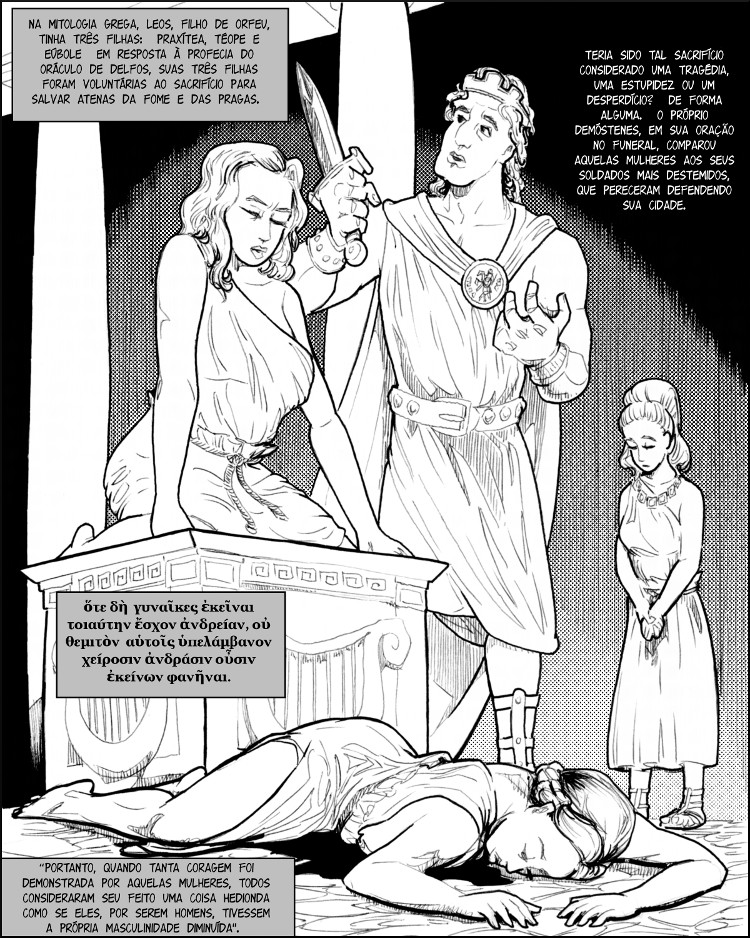

This work is licensed under a Creative Commons Attribution-NonCommercial-ShareAlike 4.0 International License.
PAGE 83 (Single panel page)
Single panel: A representation of Leos sacrificing his three daughters Praxithea, Theope, and Eubule. There are a number of art-historical views of what human sacrifices might have looked like in Archaic Greece and mostly this will be left to the discretion of the artist, with the recommendation that he image search some of the more famous Greek maiden sacrifices, such as those of Iphigenia or Polyxena, and extrapolate from there. Perhaps Praxithea can be lying already sacrificed at her father’s feet, Theope can be under the knife, and Eubule can be patiently waiting her turn. The four captions can be at the corners of the illustration, or otherwise arranged as seems reasonable.
CAPTION – UU Minister speaking (1): In Greek legend, Leos, the son of Orpheus, had three daughters: Praxithea, Theope, and Eubule. In response to a prophecy from the Oracle at Delphi, these three daughters volunteered themselves for sacrifice to save Athens from famine and plague.
Translation (1): Na mitologia grega, Leos, filho de Orfeu, tinha três filhas: Praxítea, Téope e Eúbole Em resposta à profecia do Oráculo de Delfos, suas três filhas foram voluntárias ao sacrifício para salvar Atenas da fome e das pragas.
CAPTION – UU Minister speaking (2): Were their sacrifices regarded as tragedy, stupidity, or waste? Far from it. Demosthenes himself, in his funeral oration, compared them to the bravest of soldiers who fell defending their city.
Translation (2): Teria sido tal sacrifício considerado uma tragédia, uma estupidez ou um desperdício? De forma alguma. O próprio Demóstenes, em sua oração no funeral, comparou aquelas mulheres aos seus soldados mais destemidos, que pereceram defendendo sua cidade.
CAPTION – UU Minister quoting Demosthenes (3): ὅτε δὴ γυναῖκες ἐκεῖναι τοιαύτην ἔσχον ἀνδρείαν, οὐ θεμιτὸν αὑτοῖς ὑπελάμβανον χείροσιν ἀνδράσιν οὖσιν ἐκείνων φανῆναι.
Comment (3): Do not attempt to translate this passage in Greek. It’s translated into English at (4) below, and you can translate it from there into your target language.
CAPTION – UU – Minister translating (4): “When, therefore, such courage was displayed by those women, they looked upon it as a heinous thing if they, being men, should have proved to possess less of manhood.”
Translation (4): “Portanto, quando tanta coragem foi demonstrada por aquelas mulheres, todos consideraram seu feito uma coisa hedionda como se eles, por serem homens, tivessem a própria masculinidade diminuída”.
![]()
![]() A Isca (Português/Versão em página longa)
A Isca (Português/Versão em página longa)
A Isca (Português/Versão em carrossel)
